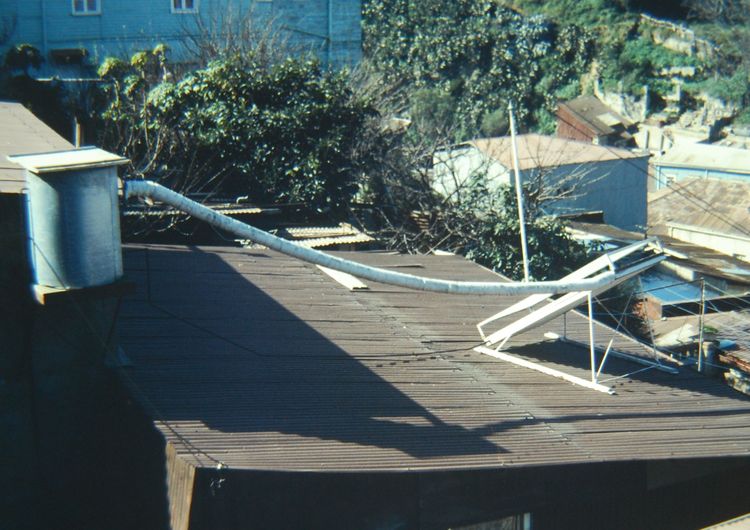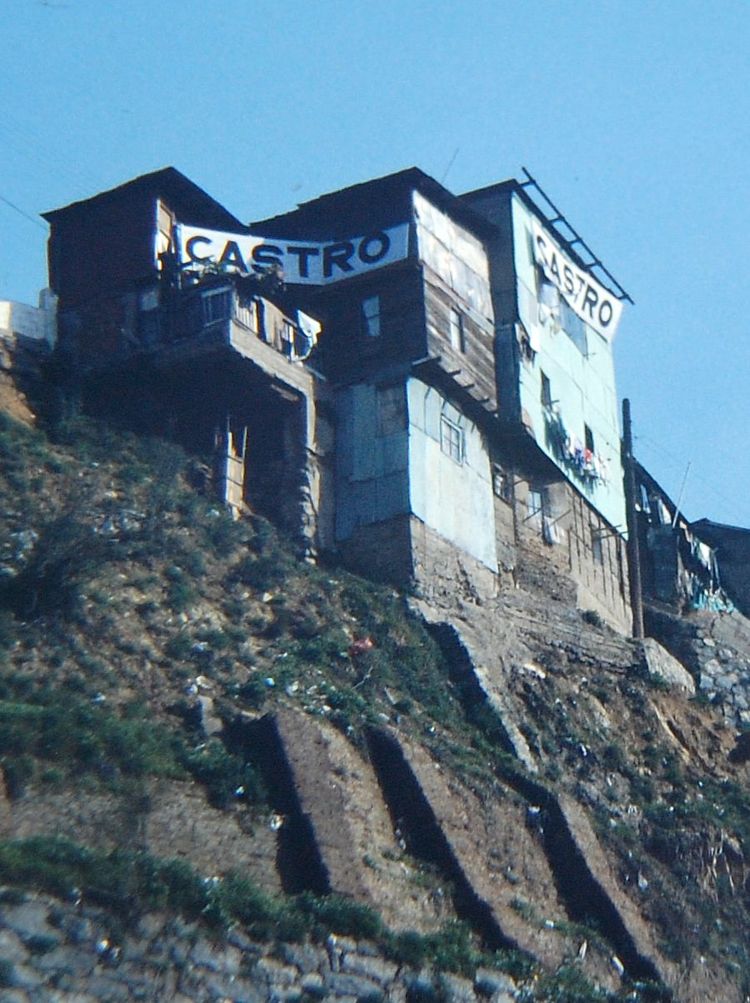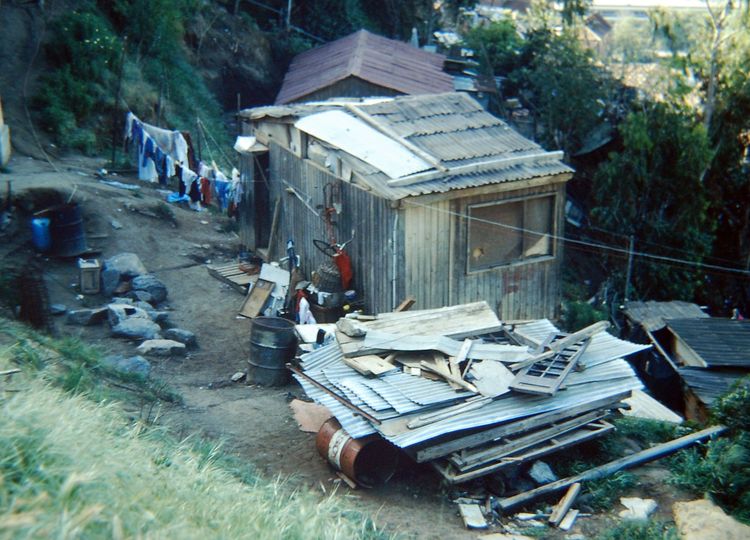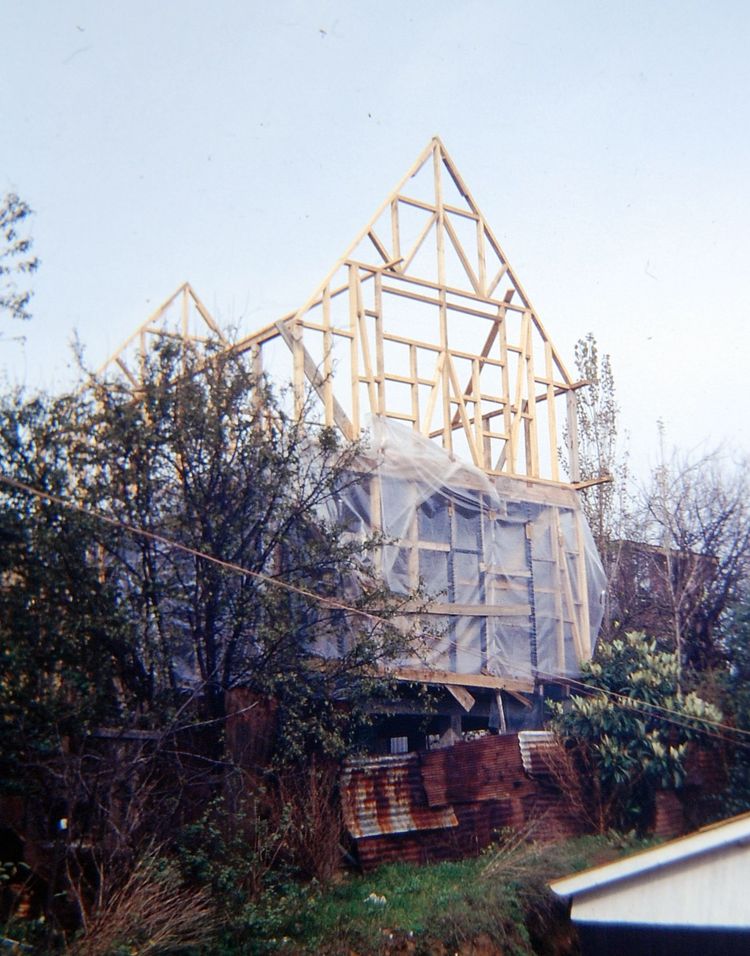A construction model is a good example of a tool that has changed the way we build buildings today. For most, these models are important because they increase productivity, efficiency, and profit, along with better documentation and the long dreamed of hope of eliminating conflicts before they get into the field. To capitalize on their potential, proponents of construction modeling have adopted industry wide euphemisms like “building information models” or “BIM” just to sell the idea.

For SketchUp construction modelers, the ability to fabricate materials, preassemble them as pieces and think through a quick three-dimensional process, while intuitively inventing solutions, is a return to the traditions of the early builders. The ability to piece together a simple construction model signals a new age and self-determined approach for the hands-on builder.
The natural builder
As a consequence of our modernity, the work of builders has long been overshadowed by formal contracts, costs, and values that have made the instincts of a natural builder pretty much irrelevant in a formal economy. It now takes a great deal of education, training and experience to succeed in the construction industry At the same time, informal builders work outside of a construction industry, untouched by money, profit or the satisfaction of a career. Impoverished, marginalized, and excluded by choice or chance, these builders build because there is no other option, no clear path to follow for their own personal security. To survive in an unregulated world, they must provide shelter for themselves and their families.

What is interesting is that many of these builders go far beyond what is absolutely necessary for basic shelter, some are clearly experimenting with new ideas, and almost all share an intuitive blend of self-confidence, optimism, instinct, and desperation that leads them to build what often appear to be outrageously dangerous structures.

Perched on steep hillsides or abandoned riverbeds, they put together buildings with a few hand tools, very little money, and an odd collection of materials hunted and gathered from whatever resources that surround them. The objects informal builders manage to find are indeterminate, which means they must constantly rethink their application, sorting and storing, waiting for some future inspiration -- perhaps an idea that will be triggered by their next material discovery. All of this, with hunger and insecurity relentlessly at play, ready to discourage their carefully considered inventive strategies.

As a result, what we see in the informal sector are buildings shaped by luck, risk, and intuition. These are buildings assembled instinctively in a world where resources are unpredictable, random, and only available when found at little or no costs. Tools and experience influence quality, but constructions begin and end like sculptures. Without the luxury of a plan, design is not an option. Instead, pieces are assembled temporarily as a three-dimensional form of habitable storage, built to be deconstructed and reassembled as new materials are discovered and new configurations are created.
An instinct for construction
What’s interesting is that these are the same instinctive qualities shared by builders assembling pieces for a virtual construction model. Like informal builders, piece-based modelers share a tactile understanding of the three-dimensional potential of a material. This includes their willingness to visually test ideas by fitting a variety of objects into the details of an evolving physical form -- assembling, deconstructing, and reassembling their buildings according to the self-determined “feel” of a natural builder.

This innate passion for construction can be seen in the assemblies of many of the buildings in an informal settlement, clearly reflecting the capacity of their owners to endure the unpredictable circumstances of their lives, the absence of any official support, and the impoverished nature of simply surviving in a net-zero economy. What remains is to wonder at the perceptive genius of their informal constructions, something that has long since been lost to the standards, rules, and regulations of a formal economy.
.
